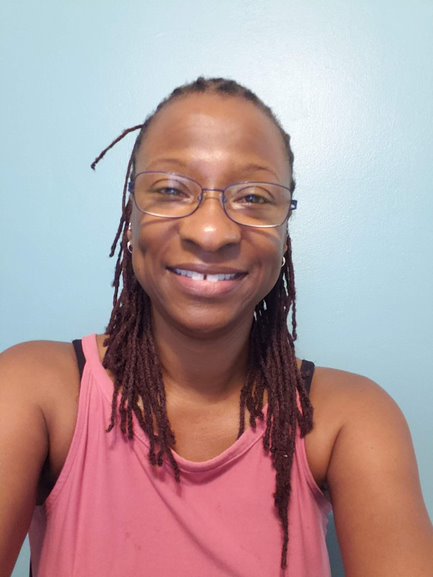I will share two brief stories with you. The events tied me up in knots then, and I still get a passing, painful pang every-now-and-again these days when I hear of past and recent injustices to black Americans.
The Other Side of Town
Like all newcomers to this country, my parents were hopeful West Indian immigrants desiring the American dream. While they established themselves in the US, I lived with my grandparents in Jamaica. Then seven years later, at age eleven, I moved to the US to join them. My family lived on the side of town where my neighbors were primarily black. There was a park and main road which separated the largely black community from the white community. I remember my dad telling me never to go to the park because it was a dangerous place. A couple of years later while my mom ran an errand, a friend and I ran to the park.
We picked up stones to protect ourselves in case we were attacked. While we walked through the park and looked around, we could not tell why my parents were so concerned. We saw people jogging, others walking, and it was relatively quiet. As we moved through the park, we began to hear enthusiastic sounds. We followed the sounds and saw black and Hispanic guys playing basketball. People stood around watching and so did we from a distance.
Concrete Walls
We continued our exploration toward two giant, concrete walls. Some people were hitting a ball back-and-forth to the wall with their hands. “Oh, that’s handball,” my friend said. “I like it!” Then we walked to the other side of the wall where no one was playing. When we looked up at the wall, we were shocked to see bright-red, bold, dramatic, dripping letters spray-painted there. The message read “N—–S GET OUT!!!”
My heart sank. I had heard that ugly word on TV, but I NEVER personalized it or thought of myself as one. But on this day, my young self knew it was directed at me. That was the danger my dad warned me about.
As I shoved my hands into my pockets and felt the stones, I knew they could not protect me from such malicious words. “Come on, let’s go,” I said. We walked home silently. But I had been changed. My dad had tried to protect me from that deep, stinging pain that teaches a lasting lesson his child did not need to learn.
I had no desire to revisit the park for years. Then one day, as my mother and I drove by, I noticed that the sign had been painted over. Half the wall had been painted gray, but some of the red letters were still obvious. Why hadn’t they done a better job of covering the hatred?
Another Breach of Justice
About two years ago, I drove from my home in South Florida to visit a relative in North Central Florida. I am not sure why I followed the GPS to the I95 instead of taking Florida’s Turnpike which I normally did for the 4-hour drive. But there I was on the I95. My 9-year-old daughter and I were ready for our long ride.
At some point, I got into the left lane and was sandwiched between two SUVs. Admittedly, we were all going at a good clip. When I saw the two squad cars it was too late. They pulled all three vehicles over. A senior, white female officer directed a younger Hispanic male officer to the first vehicle. She went to the vehicle behind mine.
The Hispanic officer walked over to the first vehicle and held a brief conversation with them. His demeanor was pleasant. He then stood back and allowed them to drive off. I also noticed that the female officer had released the vehicle behind me. The drivers in both vehicles were white. The junior officer walked over to me. No niceties were exchanged. “License, registration, and insurance,” he requested; and walked to his vehicle. Immediately, I realized my experience and those of the people in the SUVs would be different.
I was given a speeding ticket of more than $100. The officer was very curt; he explained nothing. The senior officer showed her approval by nodding at him when he looked back at her. I thought about asking why the others were released but did not feel comfortable. I did not want to cause myself further anguish, and I did not want to traumatize my young daughter by having her witness any unnecessary anger or violence.
It Felt Wrong
I paid for the ticket when I reached my location. Then about a week after I returned home. I received an envelope from the town where I had gotten the ticket. The town’s clerk requested $5 more because the officer did not fill in the correct amount. It did not matter whether it was $5, $50, or $500 more, I felt powerless, angry, and depressed.
I remitted the additional amount but protested by writing “theft” in the check’s memo. Since I came to this country, there had often been so many stories of police wrong-doings that I did not feel I could fight.
There are other African Americans who have suffered far worse during traffic stops at the hands of law enforcement. I did not want to end up like Sandra Bland did in 2015. Had my allowance of what seemed like insignificant actions on the part of those officers that day help law enforcement to feel so superior, that they believed they could get away with anything? Countless people had acquiesced before me to save their lives. On the other hand, had I questioned or protested the injustice at the time, I may not have lived to tell the tale. I feel grateful and empowered that I am alive to share my story.
Neither the poor attempt at repainting that wall nor paying the speeding ticket sweeps away the evil stench of injustice that hides in the hearts of bigots. That change must come from a genuine, deep desire to see progress and equality for all.
One Definition of Racial Injustice
Racial injustice: These words seem so eloquently and politely paired. They are like a euphemism for going to the “restroom” rather than the toilet. Those words though a well-intended label, are harbingers of outright hatred, evil intentions, and help racists live out the true nature of their sadistic thoughts of imagined superiority. Such ideas come to mind when I think of racial injustice. The true meaning of those words pales in comparison to the realities of peoples’ cruel, cold hearts.


